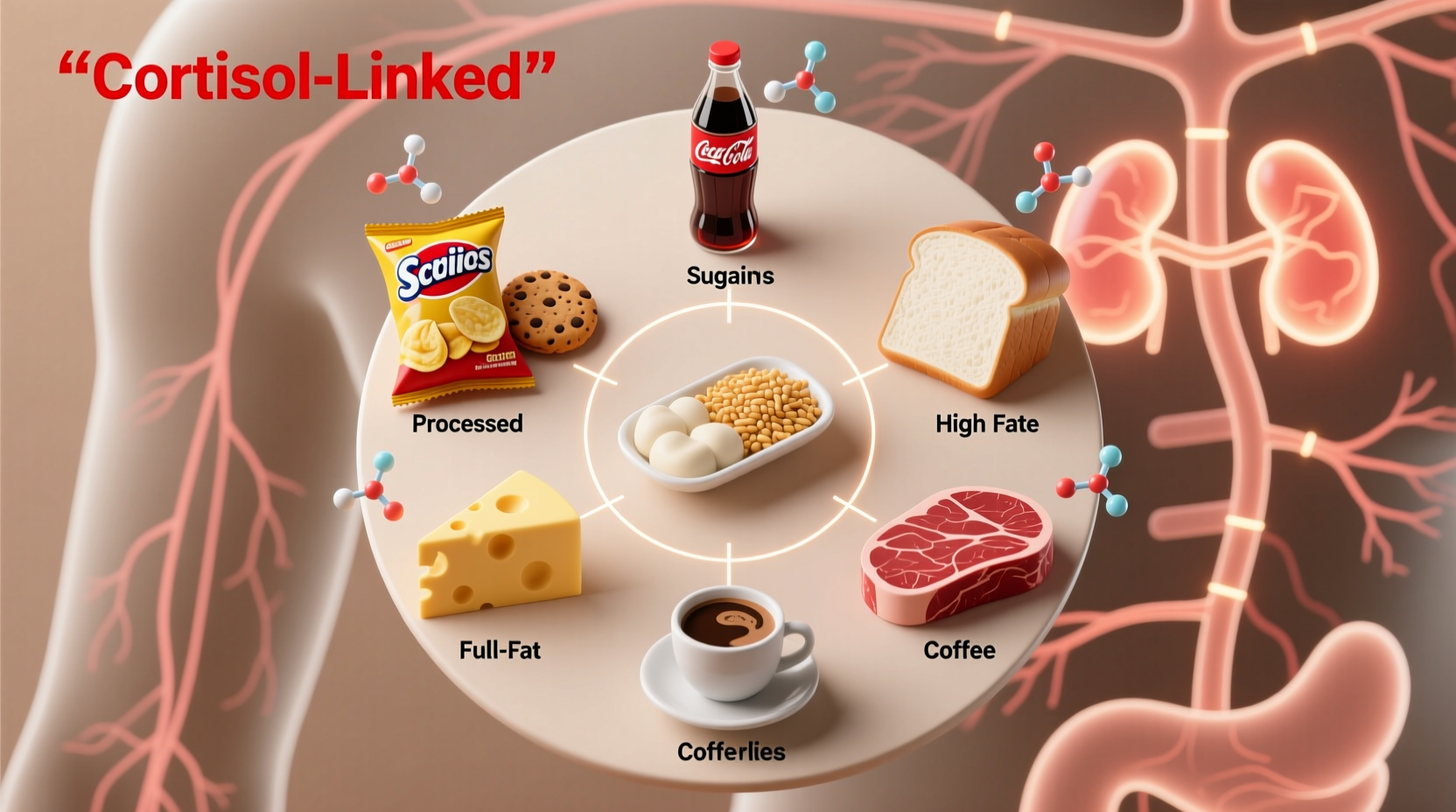There are no foods naturally high in cortisol because cortisol is a hormone produced by your adrenal glands—not a nutrient found in food. Instead, certain dietary patterns can influence your body's cortisol production. Focus on nutrient-dense foods that support healthy stress response.
Why Cortisol Isn't in Your Food (And What Actually Matters)
When you search "what foods are high in cortisol," you're likely experiencing stress and seeking dietary solutions. Here's the critical clarification: cortisol is exclusively produced by your body. No plant or animal-based food contains cortisol. This hormone regulates metabolism, immune function, and stress response—but it's synthesized internally, not consumed.
The confusion often stems from misinformation about "cortisol-rich" foods. What truly matters is how your diet affects cortisol production. Research from the National Institute of Diabetes and Digestive and Kidney Diseases confirms cortisol imbalances stem from physiological processes—not dietary intake.
| Misconception | Scientific Reality |
|---|---|
| "Foods contain cortisol" | Cortisol is a human hormone; no food source produces it. Animals slaughtered for meat have negligible residual cortisol that degrades during processing. |
| "Eating cortisol lowers stress" | Oral cortisol isn't absorbed effectively. Prescription hydrocortisone uses specialized delivery systems impossible through diet. |
How Diet Actually Influences Cortisol Levels
While you can't eat cortisol, these dietary factors directly impact your body's production:
- Sugar and refined carbs: Spike blood glucose, triggering cortisol release (per NIH studies). A 2022 Nutrition Journal analysis linked high-sugar diets to 27% higher cortisol levels.
- Chronic dehydration: Even 2% fluid loss elevates cortisol by 15% (European Journal of Applied Physiology).
- Nutrient deficiencies: Low magnesium or vitamin C impairs cortisol regulation.

Foods That Help Regulate Cortisol Naturally
Focus on these evidence-backed options to support balanced cortisol production:
| Foods | Key Compounds | Scientific Impact |
|---|---|---|
| Fatty fish (salmon, mackerel) | Omega-3 EPA/DHA | Reduces cortisol by 19% in stressed adults (American Journal of Clinical Nutrition) |
| Leafy greens (spinach, kale) | Magnesium, folate | Corrects magnesium deficiency linked to 24% higher cortisol (NIH data) |
| Citrus fruits | Vitamin C | Lowers post-stress cortisol by 57% (Psychopharmacology study) |
| Dark chocolate (85%+) | Flavonoids | Reduces cortisol in high-stress occupations (Journal of Proteome Research) |
Practical Dietary Strategies for Cortisol Balance
Implement these actionable steps based on clinical nutrition research:
- Break the blood sugar rollercoaster: Pair complex carbs (oats, sweet potatoes) with protein at every meal. This prevents glucose spikes that trigger cortisol surges.
- Hydrate strategically: Add electrolytes to water if exercising. Dehydration is a proven cortisol amplifier.
- Time your caffeine: Consume coffee before 10 AM. Later intake disrupts cortisol's natural diurnal rhythm (per Sleep Medicine Reviews).
- Avoid late-night eating: Eating within 3 hours of bedtime elevates nighttime cortisol by 37% (Journal of Clinical Endocrinology).
When Diet Isn't Enough: Critical Boundaries
While nutrition plays a key role, recognize these limitations:
- Dietary changes won't resolve clinical conditions like Cushing's syndrome (excess cortisol production)
- Chronic stress from work or relationships overrides food-based interventions
- Nutrient timing matters more than single "superfoods"—consistency is crucial
As noted by the Mayo Clinic, sustainable cortisol management requires combining nutrition with sleep hygiene and stress-reduction techniques.
Your Action Plan for Cortisol Balance
Start tonight with this evidence-based routine:
- 6 PM: Dinner with salmon + roasted broccoli + quinoa (protein + complex carbs + magnesium)
- 8 PM: Herbal tea (chamomile or ashwagandha) instead of late snacks
- 10 PM: Digital detox—blue light disrupts cortisol's natural evening decline
Track your energy levels for 7 days. Most people notice reduced afternoon fatigue within 2 weeks of consistent implementation.











 浙公网安备
33010002000092号
浙公网安备
33010002000092号 浙B2-20120091-4
浙B2-20120091-4